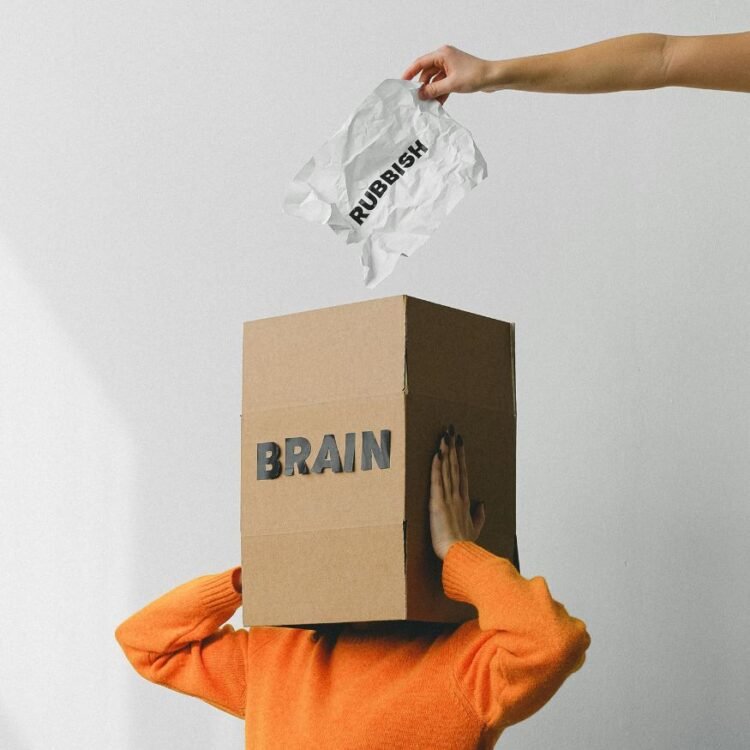Remember when your parents warned you TV would rot your brain? They were onto something – just a few decades early.
Both “brain rot” and “brainrot” snagged Oxford Word of the Year 2024, beating out competitors like “demure” and “romantasy” with a whopping 37,000 public votes.
The term’s usage shot up 230% between 2023 and 2024, according to Oxford Languages data.
If these brainrot words are any indication of where we’re headed in 2025, our collective brain cells aren’t getting a break anytime soon.
What Is Brain Rot, Actually?

“Brain rot is defined as the supposed deterioration of a person’s mental or intellectual state, especially viewed as the result of overconsumption of material (now particularly online content) considered to be trivial or unchallenging,” explains Oxford Languages President Casper Grathwohl.
Research from Frontiers in Human Neuroscience suggests that excessive consumption of short-form videos can negatively impact attention functions, as measured through EEG studies.
A 2023 study published in BMC Public Health found concerning links between short video consumption and psychological disorders in college students.
From Thoreau to TikTok: A Brief History of Brain Rot Words

The first documented use of “brain rot” comes from Henry David Thoreau’s 1854 masterpiece Walden.
Comparing society’s intellectual decline to Europe’s potato crisis, he wrote:
“While England endeavours to cure the potato rot, will not any endeavour to cure the brain-rot – which prevails so much more widely and fatally?”
The term resurfaced in 2004 online, but its modern evolution is fascinating:
- 2007: Twitter users apply it to dating shows and video games
- 2020: Explodes on Discord as an internet meme
- 2023: Usage increases by 230% as mainstream media adopts the term
- 2024: Oxford Word of the Year recognition
The Gen Alpha Connection
Dr. Brent Henderson, a linguistics expert quoted by WUFT News, predicts the term will have staying power due to its memorability and cultural relevance.
The vocabulary associated with brain rot has become a fascinating linguistic phenomenon, particularly among Generation Alpha users:
- “Skibidi” (from the viral YouTube series Skibidi Toilet, reaching billions of views)
- “Rizz” (Oxford’s 2023 word of the year)
- “Gyatt” (slang term for physical attributes)
- “Sigma” (evolved from alpha male terminology)
- “Delulu” (shortened form of delusional)
When Brain Rot Goes Mainstream
The term’s journey from social media to mainstream culture hit a notable milestone when Australian Senator Fatima Payman delivered a parliamentary speech in September 2024 using Gen Alpha slang.
“Though some of you cannot yet vote, I hope that, when you do, it will be in a more goated Australia for a government with more aura. Skibidi!” she declared, prompting widespread media coverage and discussions about the evolution of political communication.
The Science Behind Brain Rot
Recent studies paint a concerning picture:
- Mobile phone short video use negatively impacts attention functions (Frontiers in Human Neuroscience, 2024)
- Short-form video addiction correlates with academic procrastination (Frontiers in Psychology, 2023)
- Research from BMC Public Health reveals concerning patterns in college students’ psychological health related to short video consumption
Mental health professionals are taking notice. In 2024, U.S. mental health centres began publishing guidelines for recognising and avoiding brain rot, particularly targeting parents and educators working with young people.
Looking Ahead: Brain Rot in 2025
“Looking back at the Oxford Word of the Year over the past two decades, you can see society’s growing preoccupation with how our virtual lives are evolving,” notes Grathwohl.
“Brain rot speaks to one of the perceived dangers of virtual life, and how we are using our free time.”
With emerging technologies and even shorter content formats on the horizon for 2025, researchers predict we’ll see new manifestations of brain rot across platforms and generations.
Now, if you’ll excuse me, I need to go watch 47 consecutive cat videos. For research purposes, obviously.
By the end of 2025, that number will probably be 147 – but hey, at least we’ll have a scientifically validated term for what’s happening to our brains.


